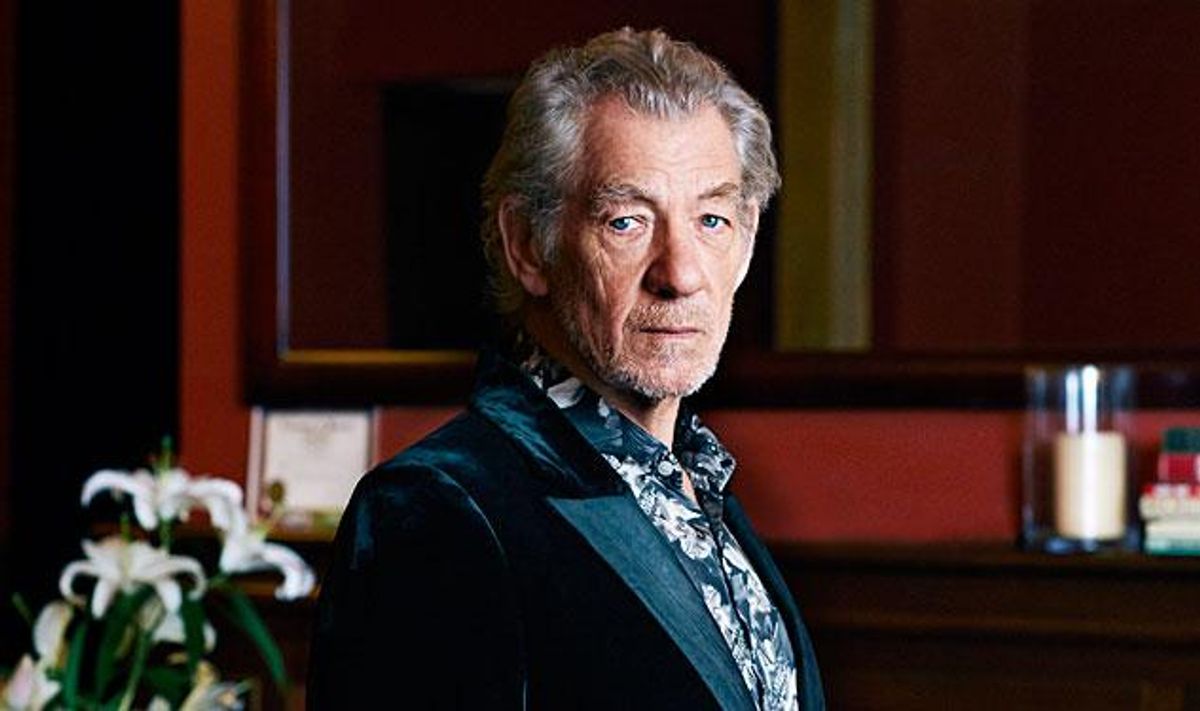
Photography by Danielle Levitt
It's tempting, when talking about McKellen, to conjure the great lineage of British actors -- Laurence Olivier, John Gielgud, Ralph Richardson -- whose talents lit up the English stage and turned them into household names. Like them, McKellen is a colossus who has left his imprint on stage and screen, in roles as varied as Macbeth, Estragon in Waiting for Godot (a role he reprised this fall on Broadway), and Gandalf. And, like them, he was knighted for his services. But unlike them, McKellen has played an equally formidable role as a champion of LGBT rights.
After coming out in 1988 in protest against Britain's Section 28 -- which sought to prevent schools from promoting "the acceptability of homosexuality as a pretended family lifestyle" -- he co-founded Stonewall, an LGBT lobby group in the United Kingdom, and has been a vocal advocate for gay rights ever since.
"Coming out is the best thing to fuel social change," he says. "People can only be cruel and horrible to gay people if they think that they don't know any." Of the roles he feels the most affinity for, McKellen settles on James Whale, the gay Hollywood director of the 1930s whom he played in the 1998 film Gods and Monsters, and for which he was nominated for an Academy Award.
Asked what achievement in 2013 he's proudest of, McKellen, now 74, thinks for a moment, before breaking into a wry smile: "I'm proud of still being here, I suppose."
Photographed at his home in New York City on October 2, 2013














































